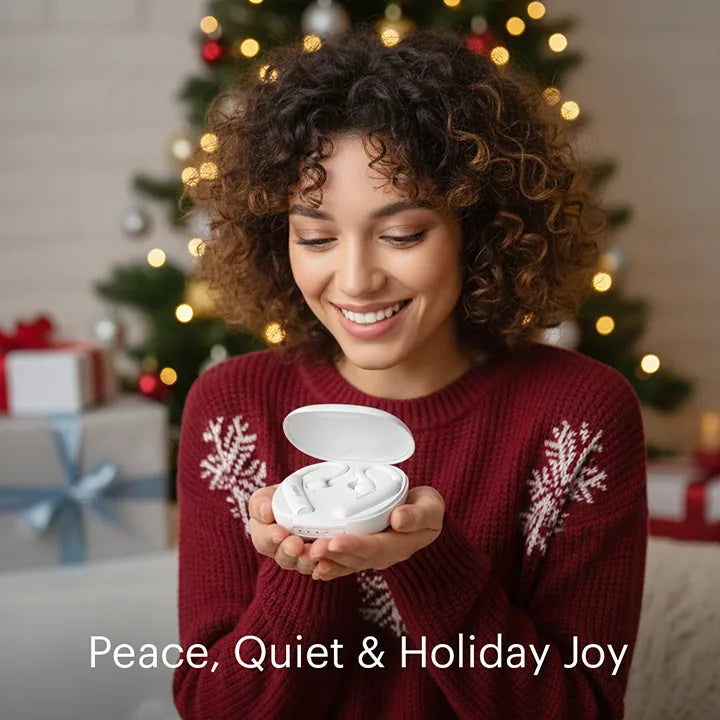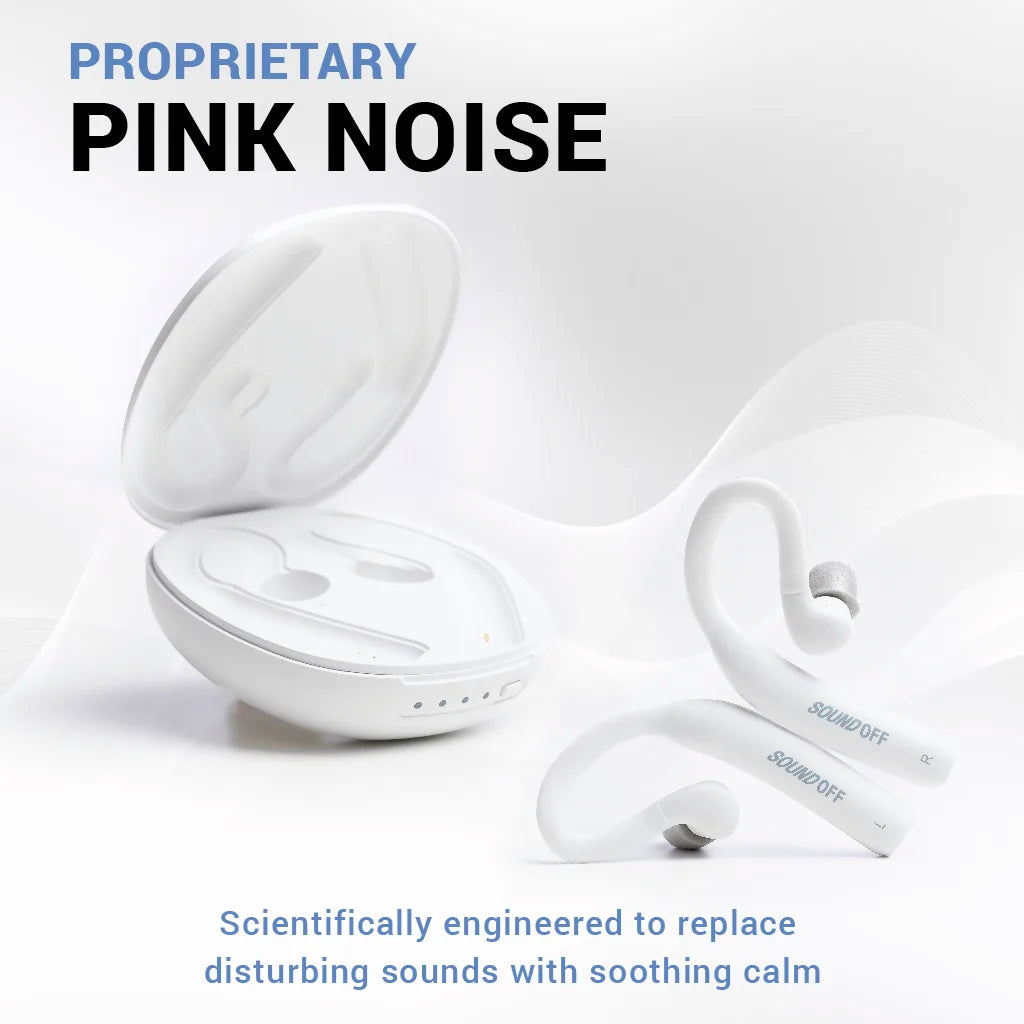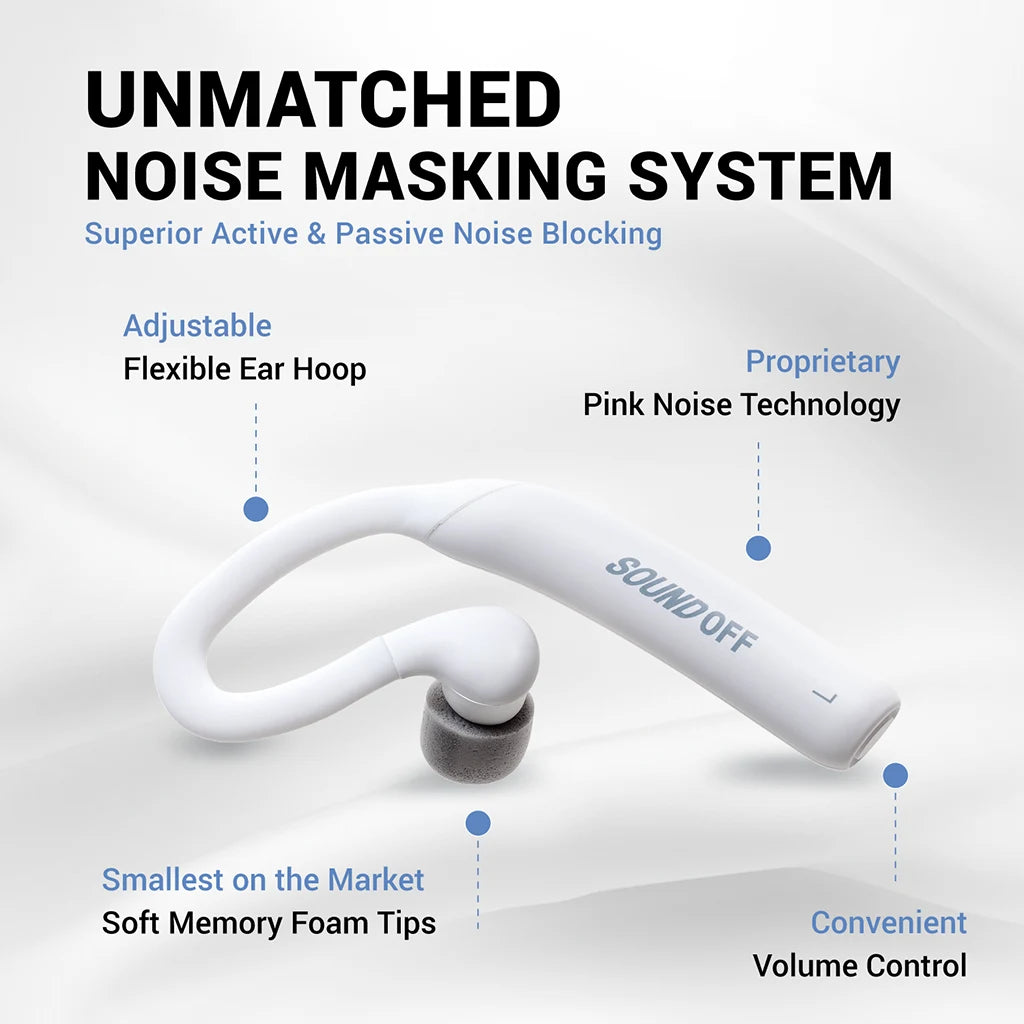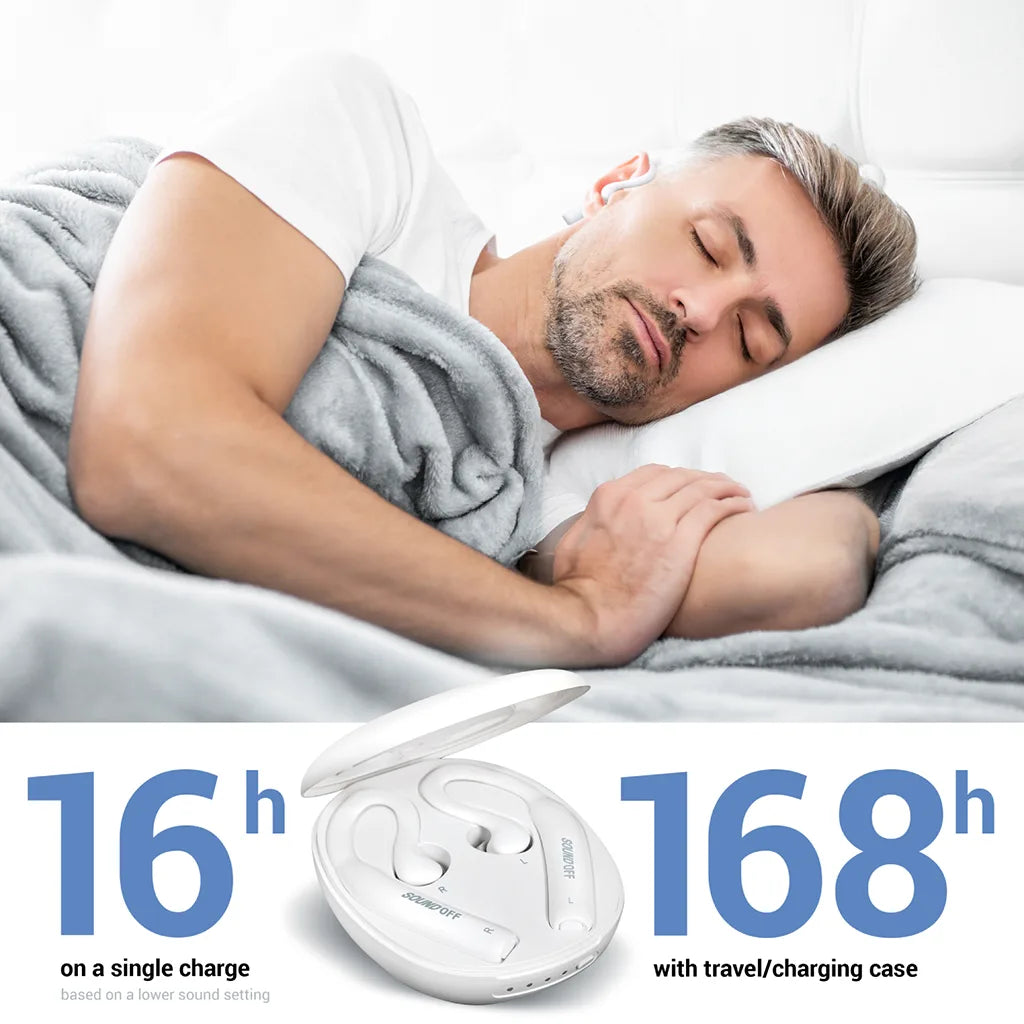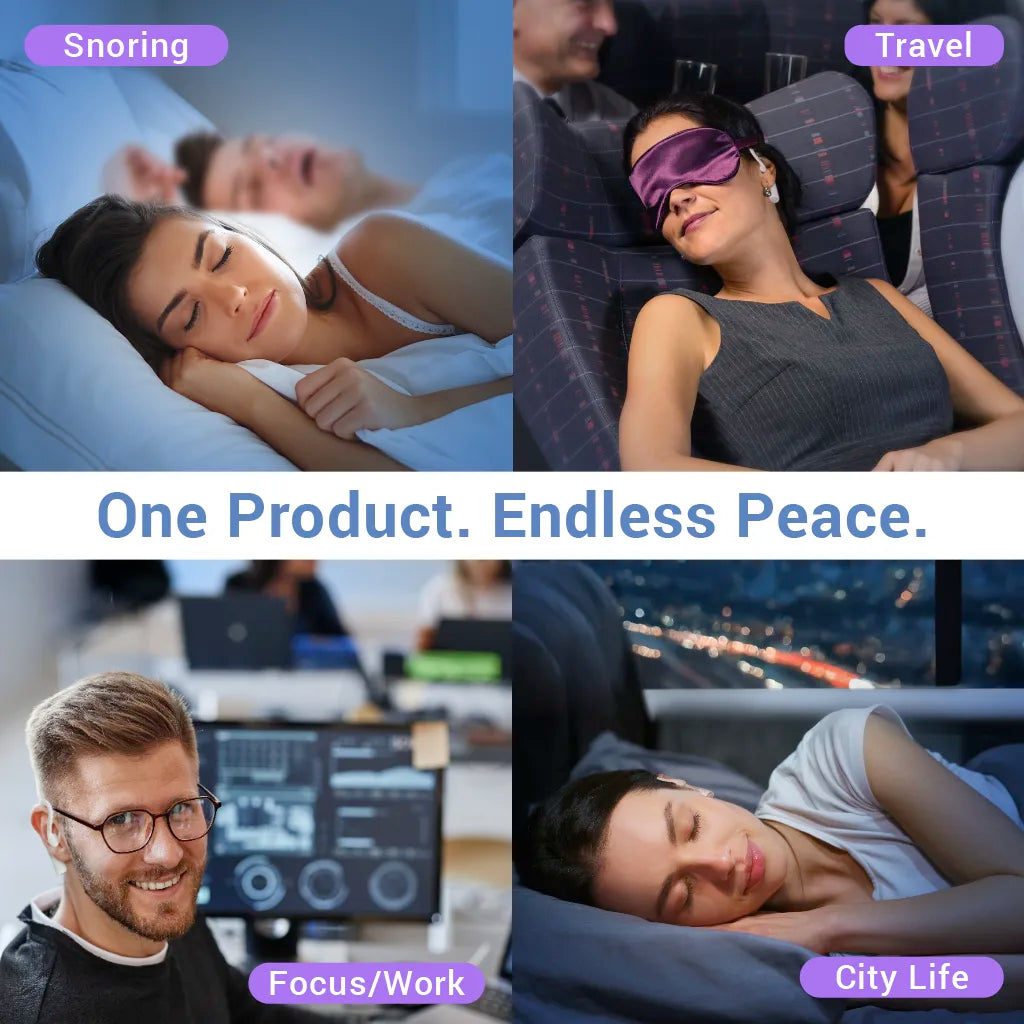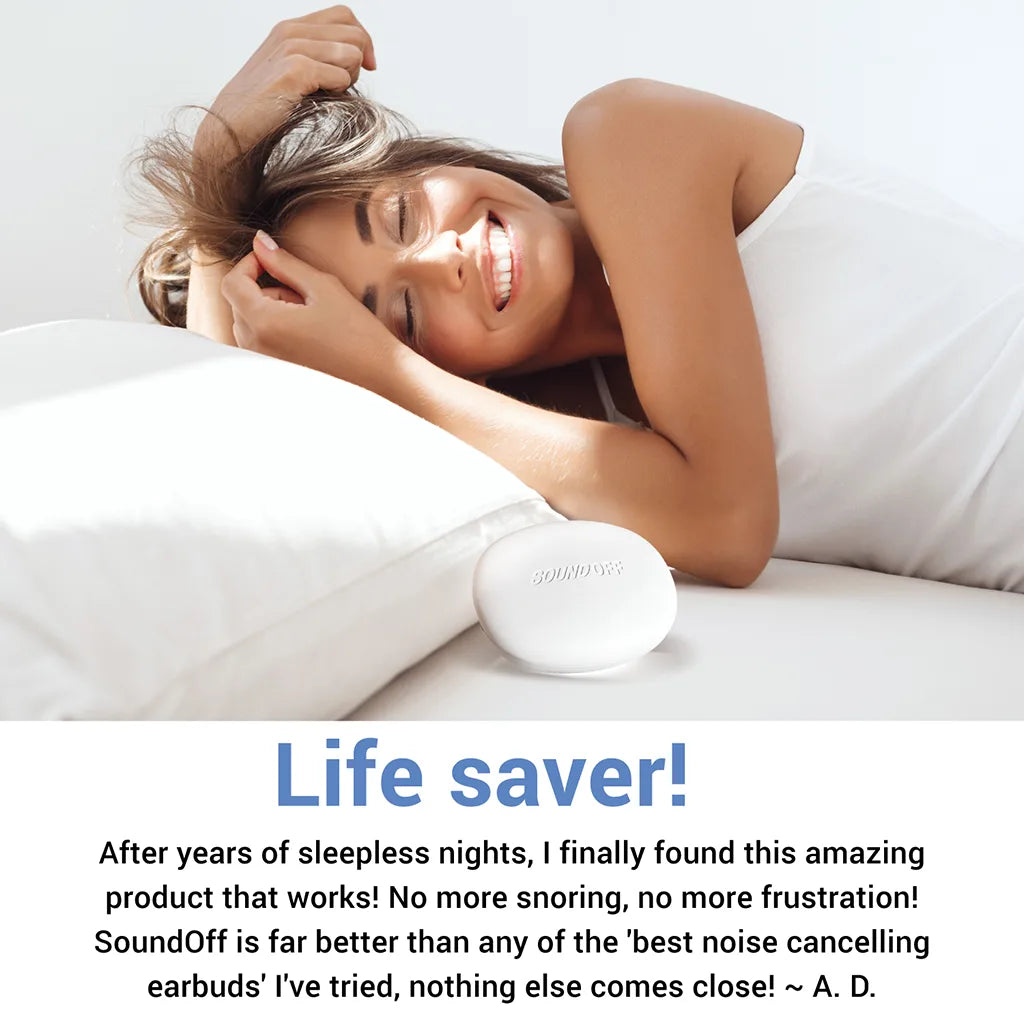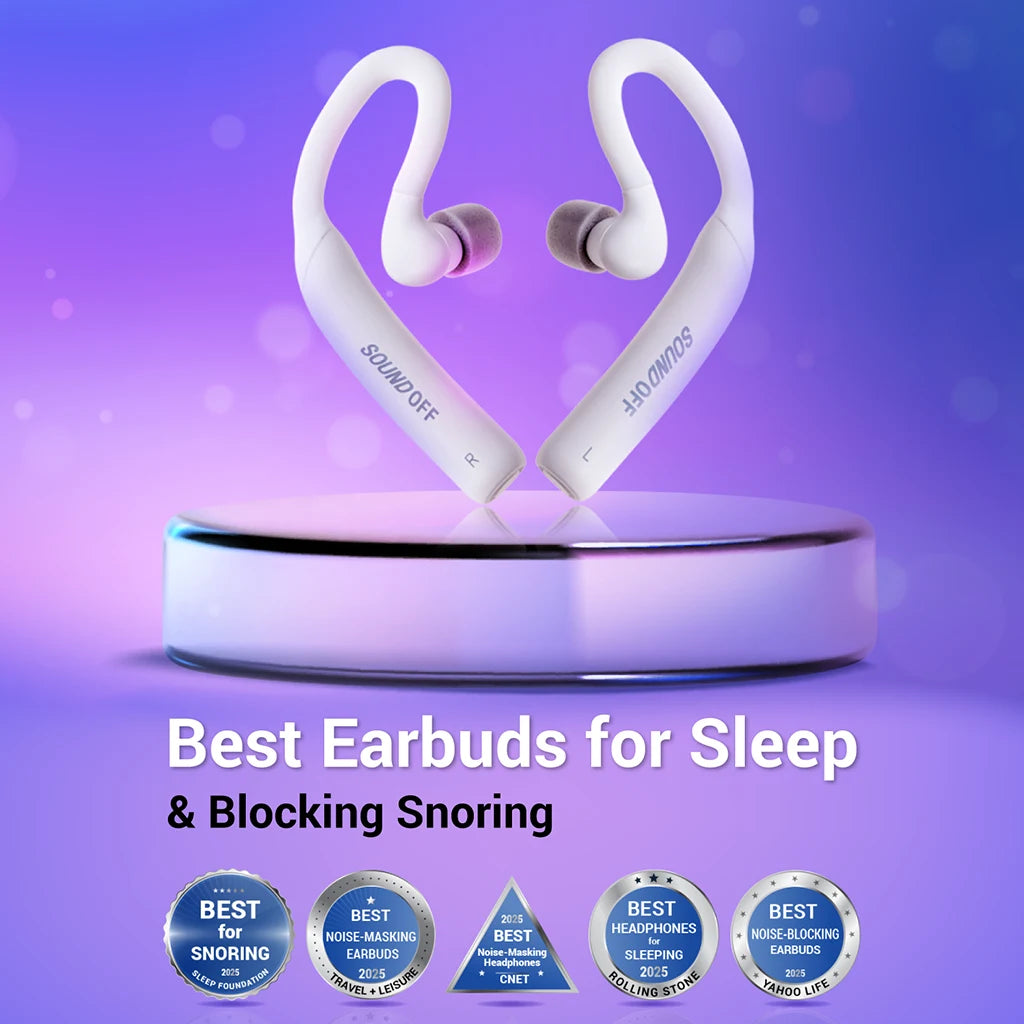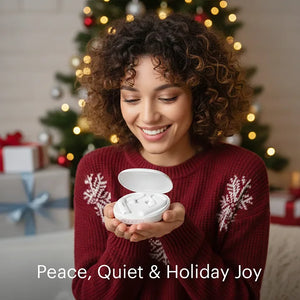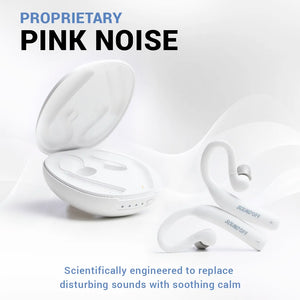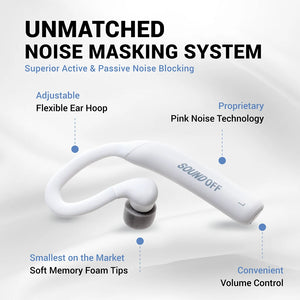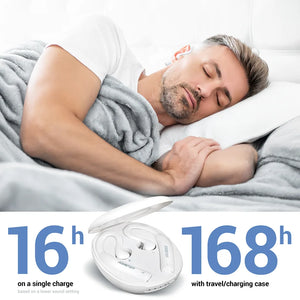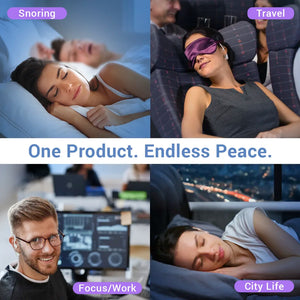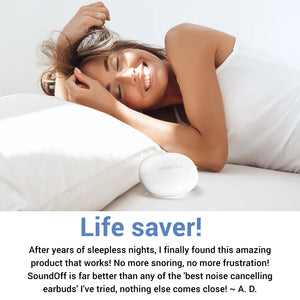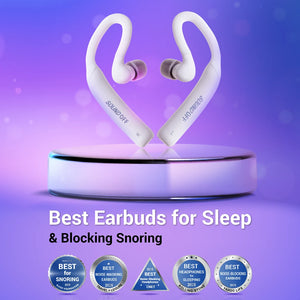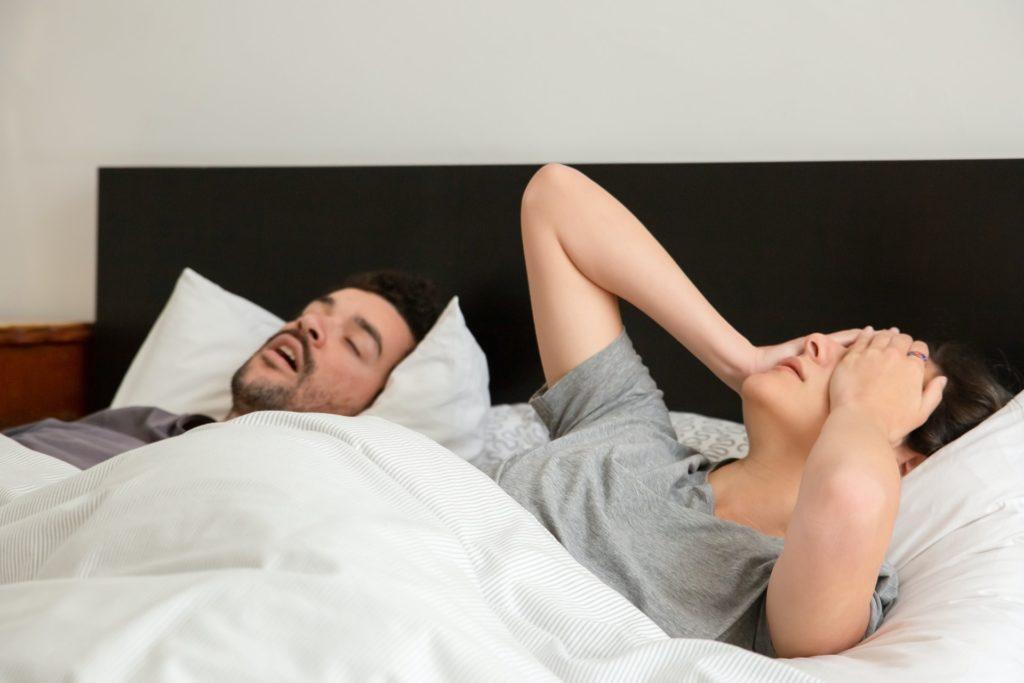
Sound Machines for Sleeping
Studies show a third of us are sleep deprived with numbers on the rise. Reasons for this widespread sleep loss are many, and often result from our personal choices—but Noise, at least initially, seems beyond our control.An unwelcome intruder that can leave us feeling helpless... Thousands of troubled sleepers are searching for a way to silence the noise and often turn first to sound machines for sleeping.
They’re popular; affordable, and have some fun features… but will a sound machine solve your noise problem?
Just as there are multiple reasons you may be losing sleep, there are also different types of noise. These vastly different noise “types” cannot all be dealt with, effectively, in the same manner. So, finding a solution that will handle the specific type of noise that’s preventing your sleep is paramount. That could be a sound machine for sleeping… or you might need a different solution.

NOISE: a sound that is loud, unpleasant, unexpected, or undesired.
Is Noise affecting Your sleep satisfaction? Noise by definition is not pleasing and is frequently, outside our control. But control it you must, if you’re ever going to get a good night’s sleep. The good news is there’s a solution to your noise problem. The key to finding it, is in understanding the type of noise you’re trying to control; and which noise control delivery system can best handle it.
We live in a noisy world.
Our lives are full of noise and much of it has become so familiar we often don’t consciously acknowledge it. It’s just sort of there… in the background; until something draws our attention to it.
As a kid, I would visit a relative and sleep in their den. During the day when the house was a-buzz, I never noticed the background sound that would inevitably prevent me from falling asleep that evening… the tick, tick, tick of a beautiful grandfather clock. Not an awful noise—I was just used to sleeping in relative silence.
Life now, is louder. More people… talking outside my window, coming home late…slamming car doors. Motorcycles whining at odd hours… weekend bouncy castles with children squealing right up to midnight. And most maddening; year-round fireworks for every conceivable occasion—I mean seriously, a baby shower? At least with the clock, I could eventually fall asleep. Does any of this sound familiar?

The 4 Types of Noise we live with
1. Continuous Noise
As the name implies, this type of noise is produced continuously, without interruption. It is typically associated with factory equipment, and heating and ventilation systems. At home, it’s more likely someone running a vacuum or an automobile engine close by (like a neighbor up the street who fires up his massive RV and lets it run long enough to rattle nerves as well as windows.)
Vacuum cleaners are among the most widely used home appliances associated with unpleasant noise.

2. Intermittent Noise
Intermittent noise is a mix of rapidly increasing and decreasing noise. This might be caused by that aforementioned factory equipment, running in cycles, rather than “continuously.” Or perhaps it’s the “wash” cycle as your roommate does late night laundry… or worse, the frequent disruptions incurred when one lives in a commercial flight path.

A recent FAA study shows people find airplane & helicopter noise far more annoying than other sources.
3. Impulsive Noise
Impulsive noise, commonly associated with construction or demolition, is a sudden burst of startling noise—a noise explosion, if you will. When the sound of a neighbor’s DIY unexpectedly blasts through your wall; when your snoring partner starts channeling a jackhammer—when a car alarm goes off in the middle of the night… you get the picture.
Those startling snore blasts... right beside us... disturb us more than noises farther away.

4. Low-frequency Noise
We’re constantly exposed to this type of noise, but the human ear is less sensitive to it than the other types. It plays in the background like a soundtrack to our daily lives—so much so that we mostly ignore the sound… the soft hum of a local power grid… the ticking of a grandfather clock.
Considered the most difficult type of noise to reduce; low-frequency noise easily travels and can spread over long distances. It’s best dealt with by modifying either the noise source, or the environment in which you’re experiencing the noise problem. Sound machines for sleeping can do neither.
That being the case, and because these aren’t the types of noises that most sleepers complain about; we’re going to focus on dealing effectively with the first three Noise types. How? By using one Noise source to block another.
Sound Machines for Sleeping—the Basics
Generally speaking, sound machines seek to address your noise problem by:
- Blocking out disruptive noises that disturb your sleep
- Introducing soothing sounds to relax you so you can fall asleep
Sound Machines for Sleeping have traditionally used White Noise for blocking out sound. They are most effective when placed between you and the sound you are trying to block out.
What is White Noise?
White noise provides a steady humming sound to create a sound barrier between you and the noise that’s disturbing you. Although it represents all sound frequencies equally, many find this noise to be harsh. This is because some ears hear high-frequency noises more succinctly than the others.
Sleep specialists often recommend white noise for people with insomnia. It has been effective in improving sleep duration in ICU patients by more than 3 hours per night at a 50-60 decibel range. While this oft quoted statistic is impressive; it’s most likely due to the relaxation factor more than the noise blocking capability. ICUs are on the quiet side after all—barring the ping of machines and the comings and goings of hospital staff, of course.
"Of all the varieties of modern pollution, noise is the most insidious.” - Robert Lacey
Sound & Delivery
It’s not just about the sound. The noise control solution you choose for your particular noise “type” will only be fully effective if the sound is properly delivered to your ear. This means closing off your ear canal to prevent other sounds from entering your ear.
Short of that, you can expect a degree of efficacy proportionate to the decibel level of the unwanted noise vs the decibel level of the noise control system. In other words, you’re likely to hear both the noise (somewhat reduced) as well as the noise blocker.
Delivery via Sound Machine
As noted above, in order to perform at their best, a sound machine must be placed between the source of the noise and your ear. If you’re using a sound machine for sleeping and the noise is coming through a wall or window; placing the machine on a table or other structure between you and the noise, may block the noise well enough for you to sleep.
Still, that depends on volume and the “type” of noise we’re talking about. Will it work to block the continual hum of vacuuming coming from next door? Probably. What if it’s coming from upstairs? Less likely since it’s overhead.
More Noise-muting Challenges...
If you’re dealing with Intermittent noise, you may find you’re continually raising the level of the sound system to cover the noise you don’t want to hear. Depending on the noise intervals, this may become tedious. You may also need to continually reassess where to place the device. Will the results be worth the effort? Well, if you’re looking to actually “silence” the noise, no. You’ll still hear the noise; just hopefully not as loud.
This “Noise Type” defeats the machine:
Trying to use sound machines for sleeping is a hopeless folly if the noise is loud and/or inconsistent or is coming from a snoring partner in the same bed. And this is not solely because you’re not going to place the device between the two of you. Blocking Impulsive noises effectively (snoring partner, barking dog) requires a dual noise blocking process—you won’t be able to fully block the noise without closing off access to your ear canal. Without using both active and passive noise masking, you'll still hear the noise you're trying to escape.
In summary, Intermittent and Impulsive noises thwart the noise blocking effectiveness of sound machines for sleeping. If you still want to give one a try, or already have one and are trying to make use of it for these more challenging noise types; adding earplugs can lessen the amount of noise entering your ear. But if you’re serious about your sleep; if you want to mute—rather than muffle—the noise, here’s a better option…

Blocking Impulsive noises effectively (snoring partner, barking dog) requires a dual noise blocking process.
Sleep Earbuds
Sleep earbuds deliver a noise blocking sound directly into yourear, not into the air. This is the “active” part of the dual noise blocking process. Some sleep earbuds employ noise “cancelling technology;” some “noise masking.” With noise cancelling (ANC,) we’re back to the issue of efficacy when it comes to blocking certain “types” of sound; primarily those unexpected “Impulsive” sound blasts.
Again, with ANC, the noise is reduced; not silenced. You’ll still hear your snorer—just not as loud. We chose noise masking for our sleep earbuds instead—because it replaces the sound you don’t want to hear with a more pleasant sound. We also chose Pink noise over White noise, because it utilizes deeper tones and lower soundwaves to produce a more soothing sound barrier.
SoundOff users report they don’t hear snoring at all… nor banging pipes, rowdy neighbors… loud storms… even freight trains. Additionally, they find our proprietary pink noise helps them relax and fall asleep faster.
Sleep Earbud Tips
Sleep earbuds either come with tips or you can purchase them separately. Whether silicon or foam, they supply the “passive” part of the noise blocking process by sealing off the ear canal with a comfortable cushion. We chose a high-quality foam for extra comfort but also because foam is better at attenuating noise than silicon. This makes our noise masking more effective at lower sound levels—and therefore a more pleasant experience for our users.
4 Reasons to choose Sleep Earbuds
Sound Delivery – Better sound blocking because it’s going directly into the ear and provides the additional passive noise barrier.
Convenience – They’re wearable. Noise doesn’t just happen at night; move freely around the house without relocating the sound machine—or having to fuss with keeping it between you and the noise source.
Life Changes – Today you’re trying to block out a minor annoyance like the neighbor’s vacuum—tomorrow it may be their howling puppy… or a noisy new neighborhood—be ready to block out any noise, anywhere.
Travel Friendly – More portable than a sound machine—they’re making them smaller but you’re still not going to use one on a plane. And remember, you’ll still hear those hotel doors slamming while you’re trying to sleep.
What’s keeping you awake?
Whatever it is, you want to deal with it as quickly and efficiently as possible to avoid the health consequences of sleep deprivation. No need to be one of the millions suffering the effects of inefficient sleep!
SoundOff is on a mission to help our readers sleep better. We take sleep seriously and hope you'll use the information in this post to improve your sleep quality—and overall quality of life.
As always, we wish you great sleep… all night—every night!






